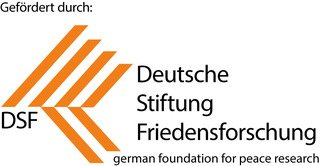DSF Network "The Persistence of Evil"
Research Network
The Persistence of Evil:
Analyzing Long-Term Transmissions of Justifications
for Mass Violence
sponsored by the German Foundation for Peace Research
project start fall/winter 2024
Mass violence is by scope, intensity, and complexity the most extreme form of conflict, and it is reoccurring at an alarming scale in the 21st century, from Afghanistan, the Middle East, Ukraine, Sudan, to Myanmar. While justifications for mass violence given by perpetrators are often dismissed, in politics, media, and research, as mere pretexts distracting from facts, the reasons regimes and groups communicate for committing mass violence are crucial for eliciting societal support. Dismissing justifications as empty talk entails a major knowledge gap: we know too little about how justifications travel through societies, and how they are negotiated after conflicts.
The research network focuses on the persistence of justifications of mass violence. They still circulate after individual culprits are brought to justice, often become widely accepted, and are transmitted over space and time. Transmissions of justifications contribute to perpetuating fault lines and set the frame for further conflict. The international and interdisciplinary re-search network allows to overcome the methodological obstacle of a disconnect of social sciences and humanities disciplines that has impeded the analysis of long-term transmissions.
The network aims at understanding how texts, terminologies, concepts, narrative patterns, and rhetorical devices that seek to justify acts of mass violence circulate in and between languages and cultures in long-term perspective, and how they are adapted in different genres and discourses. The concrete goal is to pro-vide the collaborative methodological groundwork for analyzing the long-term impact of justifications in different global regions by combining the approaches and insights of different disciplines.


